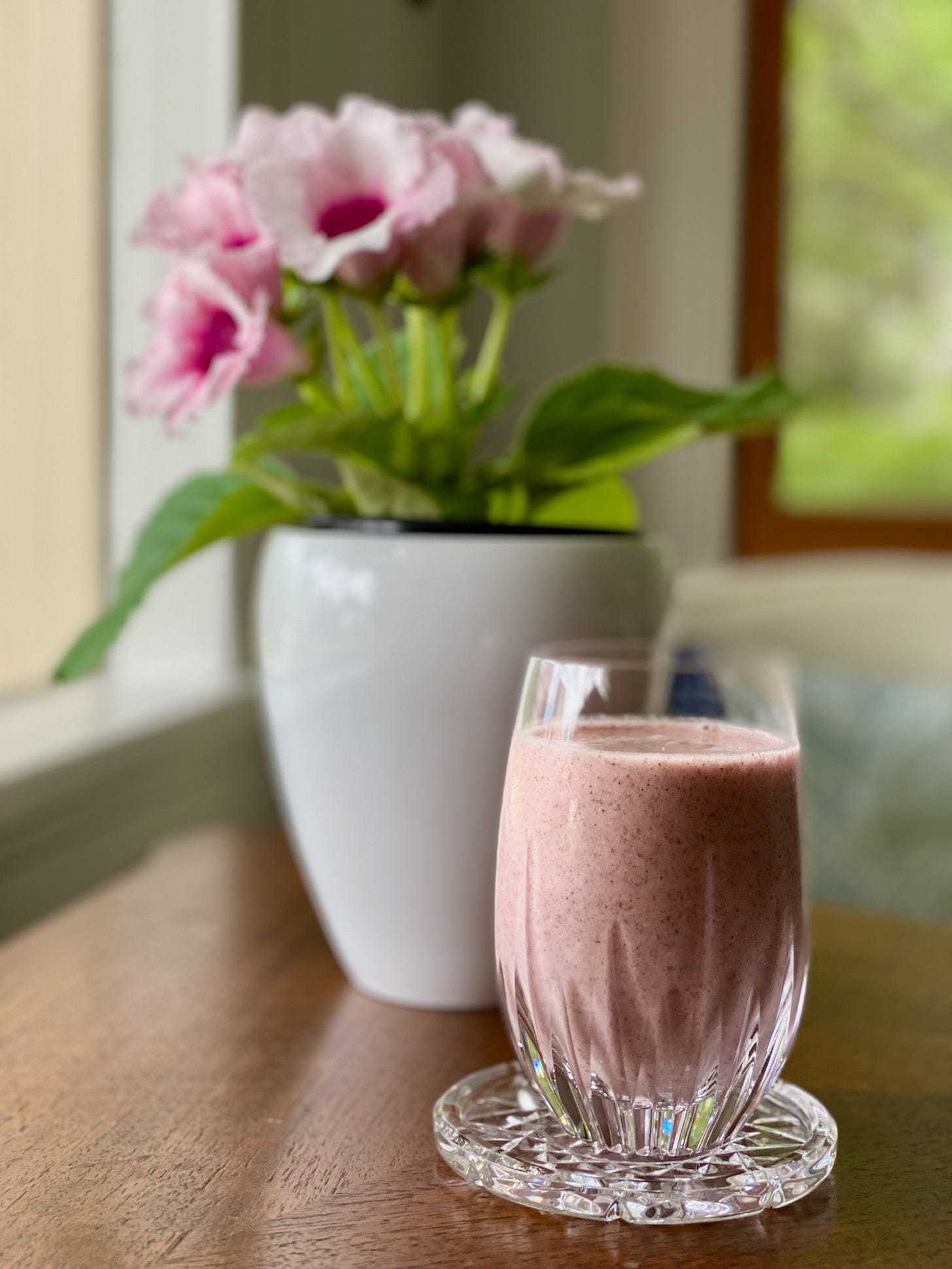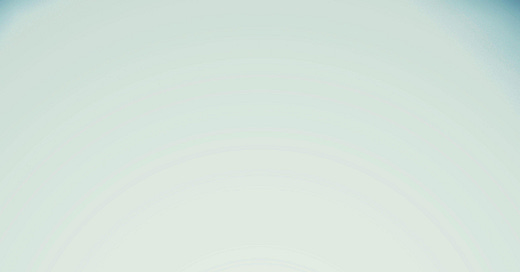Breaking Down Brain Fog
Can’t concentrate or feel fuzzy? Surprise, surprise—that’s another perimenopause problem. Or it’s your brain on menopause.
I used to be a whiz at multitasking. These days I sometimes struggle to juggle even the most simple and enjoyable tasks. Take baking, for instance. It’s one of my favorite ways to relax (as is filling the house with a warm, delicious scent—yum!) Last night I baked a lemon olive oil cake loaf. (Double yum!) I put the loaf in the oven, set the timer, and sat down to return some emails. Nothing too complicated, right? When the timer went off an hour later, I opened the oven door only to discover that I hadn’t turned the oven on. Ugh. The previous week I made muffins and forgot to add water to the batter. Yes, the batter was thick, but it was a new recipe so I didn’t think much of it. The muffins were already baking in the oven when I noticed the measured out water still sitting on the countertop. Somedays I wish my brain had a reboot setting!
What is Brain Fog?
Seeing someone you’ve known for 20 years but you can’t remember their name. Forgetting why you walked into a room. Wondering whether you returned a text message or not. Forgetting what day of the week it is. Having the inability to concentrate on a task. Being easily distracted. Any of those scenarios sound familiar? That’s brain fog.
Brain fog, or “menobrain”, accounts for many of the cognitive blips that are common during perimenopause. This state of cloudy thinking not only limits your ability to multitask (ahem, not to mention throw off your baking game) but impacts everything from memory, attention and language skills. Many women liken it to their brain feeling “off” or “muddy”. Other common symptoms include feeling mentally sluggish, having difficulty concentrating, feeling disorganized, and losing your train of thought. The good news is that this foggy feeling is temporary and usually disappears after menopause.
Fuzzy Brain and Estrogen: How do hormones impact your brain?
Many people don’t realize that estrogen isn’t just a reproductive hormone. Estradiol, the most predominant of the three estrogen hormones, is especially connected with brain health, and helps to protect and regulate it. Estradiol has been called “nature’s Prozac” because of its positive effect on serotonin. As estradiol levels fall during the perimenopausal transition, women are more likely to experience an increase in anxiety and depression. And as you may know, difficulty in concentrating and multitasking can lead to feeling frazzled. Disrupted sleep, also common in perimenopause, compounds the situation.
When estrogen levels drop during perimenopause and menopause, the brain structure and its wiring actually change. Many important functions slow down including brain neuroprotection, cell growth, brain plasticity, communication, mood, immune system, cardiovascular health and energy. These decreasing hormone levels disrupt connections in the neurons and contribute to a “muddy” mindset.
To learn more about your brain on menopause, I highly recommend The Menopausal Brain by Lisa Mosconi, Ph.D., a neuroscientist and director of the Weill Cornell Women’s Brain Initiative. One would think reading a book about how your brain is losing both gray and white matter as you age would be depressing, but I’ve truly enjoyed all the information she has to share because so much of it is hopeful! Based on her research, women are overall happier post-menopause. And that’s good news for those of us currently struggling during perimenopause. There IS a light at the end of the tunnel.
Brain fog plus Popcorn Brain: Double the Trouble
Have you heard of “popcorn brain”? On top of daily demands and responsibilities like work and parenting, your brain has the added strain of managing digital distractions like social media, overflowing email, and multiple devices. We live in an “attention economy”, where distraction is the norm and sustained attention feels more and more like a dying art form. Throw perimenopausal symptoms into the mix and I’m ready to beg for “serenity now”!
The more distracted and less centered we are, the harder it becomes to get through the day. My entrepreneur brain is constantly interrupting itself with everything I need to do for my business. For example, as I start to email a vendor to follow up on clinical trial results, I remember I still need to decide on a butterfly pattern for a secondary packaging to prepare for a meeting. Then my mom brain interrupts with the thought, it’s fajita night, and immediately creates a grocery list of garlic, chicken, red and green peppers. That thought is followed by the realization that I also need to pick up dog food. And oh, did I confirm the consult for my kid’s wisdom teeth removal? I turn to my computer to get back to that email, but first, let me quickly reschedule the haircut appointment that overlaps a photoshoot and call the plumber about snaking the kids’ bathroom. The to-do list never ends!
Simple Ways to Gain Focus and Protect Your Brain.
Find your breath.
Breathwork offers a quick and easy way to slow down and pause for a few minutes. When I feel my most overwhelmed, I know I can turn to my breath to help take the edge off those feelings. Interestingly, respiration is one of the few systems in our body that we have the ability to modulate. While we can’t influence the autonomic nervous system (think heart rate, blood pressure, and digestion), breathing is uniquely both involuntary and voluntary which then classifies it as part of the somatic nervous system. When we aren’t paying attention to our breath (which is most, if not all, of the time), our bodies will do the work for us. Yet we can consciously choose to work with our breath at any given moment.
Breathwork doesn’t have to be labor intensive or complicated - although there are certainly many ways to explore breathwork especially in yoga. Because I’m already frequently frazzled, I prefer to keep things simple (read: manageable). Three or four times a day, I drop everything and set the timer on my phone for five to 10 minutes. (I have an alert on my phone to remind me to pause what I’m doing.) Then I sit still and breathe through my nose (note: mouth-breathing is not the way to induce calmness), lengthening my exhales to stimulate the vagus nerve which triggers a relaxation response to counteract the body’s fight or flight response. Moving from the sympathetic nervous system (fight or flight) to the parasympathetic nervous system (responsible for rest and digest) allows my brain and my body to relax which then improves my ability to focus. Sadly, for many of us, existing in a state of fight or flight has become the rule instead of the exception; it should be the other way around.
If you find this hard at first, I get it. My brain loves to keep thinking instead of just existing. And paying attention to your breath may not feel natural if you’ve never tried it before. For the first few minutes, I’m trying to convince myself that the email or text message can wait. It’s like my brain protests the stillness. But if I can just sit there long enough, magic happens. My brain slows down and the breathwork calms down my nervous system. I find this especially helpful when drifting off to sleep.
Move your body.
Did you know that you don’t even have to break a sweat to experience the benefits (and joys) of exercise? There are so many simple and creative ways to increase energy and attention. For starters, how about a 15 minute walk before you get ready for the day or after dinner? You can also take the stairs instead of the elevator—even just one flight of steps if two or three flights feels unmanageable. Parking slightly further away from a store entrance is another example of how small bits of exercise can add up during the day.
I always try to get on my feet during my lunch break. Sometimes I’ll do a few reps with an arm weight, some balance work, or maybe a few hip and shoulder stretches. Fitness Marshall is my favorite way to let loose when I have 5 minutes between meetings. I’m absolutely terrible at keeping up with his choreography, but I get to wiggle in new ways and am often laughing at myself and his commentary.

Another way I clear my brain is to get outside and be in nature. I love to garden. Or I might meet a friend for a walk. (I may forget her name at first, but it usually comes to me before the end of the walk. Kidding, sort of.) We get to visit and get some fresh air while our brains as well as our joints and muscles get some circulation.

Eat for energy.
I try to stick to protein, fruit and vegetables, and some fat during lunch to help keep my energy level during the afternoon. That way I avoid the blood sugar rise and crash that can come from a carb heavy meal or a sugary drink. A typical lunch for me is a salad with avocado, some fruit such as strawberries or raspberries and some kind of protein. I’m also a fan of protein shakes that I make myself.

Love it and list it.
I am a religious list maker. Some days my lists have lists. I start each week by planning out what needs to get done, and I also time block repeating tasks—like creating content for social media or working on this Substack—so that I work as efficiently as possible. Meetings are also time blocked; I stack them on specific days to minimize downtime.
I also keep a blank sheet of paper next to me and write down all the questions I have for all the people that I meet with each week. That way I have all the little questions available in one place which keeps me prepared for meetings. When there is a task that needs to be done (i.e. create barcodes for the products, compare quotes for bottles, review formula ingredients), I specifically add that task to my calendar so that I don’t forget it needs to be done. The less urgent ones I don’t get to can always be tackled tomorrow. At the end of each day, I write on a small Post-It note exactly what I was working on the previous evening, so that I can open my computer and get right back to work instead of my muddy brain getting lost in my inbox or social media.
Stay curious (and have fun)!
I find small games soothing for my brain and a nice distraction from my emails. I’m a huge puzzle fan, but I must be responsible in choosing when to start a puzzle. Does anyone else get obsessed with putting all the pieces together and pretty much dropping everything until it’s finished? I’m also a fan of the NYT puzzles including the mini crossword puzzle, Letter Boxed and Vertex. I also play Wordle on occasion, and have found Waffle to be fun as well as Octordle.
At any given time, I’m reading a few books, generally in the evening before I fall asleep or if I wake up in the middle of the night and cannot sleep. (Tip: use a red light lamp so it doesn’t disrupt my circadian rhythm. This is the one I use.) My favorite topics include menopause, business, and anything set in Victorian England.
Anyone have a recommendation? Please leave it in the comments below as I would love to add it to my reading list.
A Few Final (and Clear) Thoughts on Brain Fog
Some days my brain feels like cotton candy and I can’t keep a train of thought. Lack of sleep is not helping. That’s when I go back to my list of ways to stay sharp and energized during perimenopause. Trust me, they make a big difference in minimizing that foggy feeling. Remember to be kind to yourself and have plenty of patience. And save this post and refer to it anytime you need a boost or your brain seems to go on strike. I’m here to remind you, you’ve got this!
Movement Snack: Spinal Twists
This week’s movement snack is all about slow, grounded movements which incorporate twists. Over the years, I have found that rotating my spine helps with anxiety. Connect your breath to your movement while incorporating a longer exhale than inhale.
Cheers to looking and feeling your best,
Susan
Susan Campbell
Founder & CEO, Phosis






I think reading this post jinxed me. The brain fog has lifted quite a bit since starting on the patch but yesterday I did forget to add the chopped vegetables in the chicken soup I was making. We went out for Mexican and we're going to have the soup this morning for breakfast! We eat breakfast for dinner sometimes so we thought why not the other way around. I'm sure you've been hearing all about protein. One way to do it is have dinner for breakfast! 😂